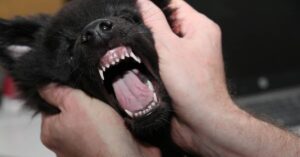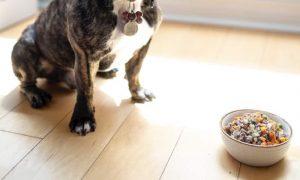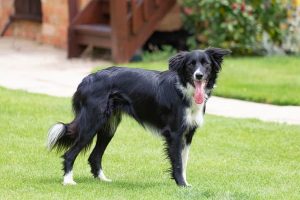WHY IS MY DOG YELPING IN HIS SLEEP?
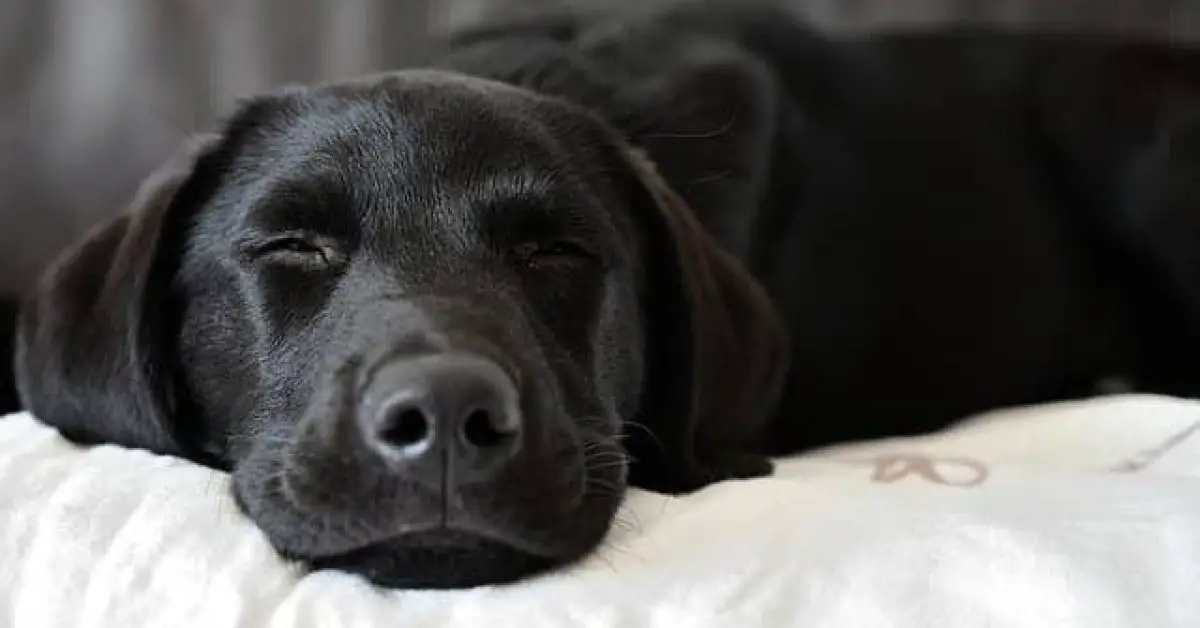
As dog parents, when we witness our dog’s yelp when asleep we often ask ourselves “Why is my dog yelping in his sleep?” It may not just be yelping, your dog may bark, growl, grunt, or even make funny noises. In most cases, this is not a cause for you to worry. You see dogs in a way behave like human beings when sleeping. Although they spend more time sleeping than we do, the pattern seems the same, with sometimes looking peaceful and sometimes filled with activities. For us to understand why our dogs would yelp while sleeping, we would need to understand the sleep phases in dogs first.
Basically, our dogs sleep deep in two major phases, rapid eye movement (REM) and non-rapid eye movement, including the starting phase of slow-wave sleep. These sleep phases are important for our dog’s psychological and physical health.
..................................
ACCESS OUR DOG VIDEOS TRAINING LIBRARY FOR FREE
The Slow Wave Phase: In this phase, your dog would be deeply in sleep, their heart rate, blood pressure, body temperature, and breathing rate will come down and they would not react to changes in temperature or noises from outside. This sleep phase normally lasts between ten to fifteen immediately followed by the REM phase.
REM Phase: In this phase, your dog’s body is at rest but the mind is still active and aware, some experts will tell you that your dog can dream at this stage. This is the stage where your dog may yelp, bark, growl, grunt, etc.
Now we have covered the basics of sleep, let’s look at the answers to the question “Why is my dog yelping in his sleep?”
Your Dog is Dreaming.
As we said earlier an average dog sleeps for twelve to fourteen hours a day with puppies and older dogs even sleeping more (sometimes up to twenty hours).
Also, their sleep cycle is similar to that of humans, so in the REM phase of their sleep, your dog may be yelping because he or she is dreaming in that instance. This dream state can be from five to ten minutes for puppies, twenty to thirty minutes for smaller dogs, and up to forty-five minutes for big dogs.
During the REM phase of sleep, a dog’s brain activity is usually at its peak. So, your dog may whimper, yelp, or even cry in its sleep. Now even though some dogs may move in an aggressive manner at this stage, it does not necessarily mean that your dog is having a nightmare.
We would harbor a guess that your dog may be dreaming of its normal daily activities in the house. It may be how they enjoyed playing with the new toy, or played fetch with you, or successfully defended the household against that intruder. You can see how easily their outward reactions to these kinds of dreams would seem aggressive.
All vet doctors seem to agree that a good dream or allowing your dog to have an uninterrupted REM phase of their sleep is very good for their mental stability. You can say it allows them to experience again in their own way the joys or pleasures they had during that period.
Even a scary dream is ok for them as it also allows them to make sense of troubling situations.
When your dog’s breathing becomes irregular and shallow, your dog twitching in sleep and its eyes move fast behind closed eyelids. You can assume he or she is in the dream state.
Your dog is having a Seizure.
How to tell if a dog is having a seizure while sleeping. One of the signs is a dog twitching and vocalizing while still in the sleep state. If the intensity at which a dog is yelping, twitching and vocalizing is very high. You are better off assuming that the dog is having a seizure.
Also if a dog is experiencing a seizure, the way it would kick and pad its legs would be more rigid and violent. Other signs would be the dog defecating and urinating when experiencing a seizure, drooling excessively, and finding it hard to breathe.
It is best to call the emergency number for your vet doctor at this moment for guidance on the next step of action.
Natural Behaviour in Puppies.
Puppies can be compared to human babies in a sense, human babies look at rest most times but can cry out at any moment for so many reasons which we don’t know, and even most of the ones we know seems irrelevant to us. But they cry nevertheless. The same logic can be applied when looking at young puppies, especially the newly born ones.
Puppies would yelp, whine, and whimper for no apparent reason, the yelping, whimpering, and whining is usually at their loudest when they get separated from their mothers and littermates. This will be very noticeable for at least a week or two.
This whining, whimpering, and yelping behavior is mainly borne out of the need to get attention and company. Puppies are also known to twitch more than their adult counterpart, so if your puppy seems to be twitchy while asleep, it is probably normal. You see at this stage of their life, their brain cells are still undergoing so the sending of signals to other parts of the body to be calm is still being worked out by their neural system. The brain would eventually get it right and the twitching will stop.
On your own part, just be patient and avoid trying to comfort your puppy too much as it will encourage them to still twitch, whine and yelp more and this is not what you want from your puppy, especially as they grow into young dogs.
Your Dog is Bored.
We all know that our dogs need to be engaged physically and mentally every day. This is for their general wellbeing. Unfortunately, most dog parents seem to be failing in this area of their dog’s life. On average, a dog needs about 30 minutes of exercise daily.
A lack of physical and mental stimulation leads to boredom in your dog and boredom in your dog can be expressed by yelping, whining, and whimpering. So if you are asking yourself “why is my dog whining so much all of a sudden?” Well, your dog may just be bored out of his mind.
Some dogs express this boredom by also closing their eyes and pretending to be asleep only for them to yelp, whine and whimper when they feel bored.
This problem is actually the easiest to solve for a dog. Engage them both physically and mentally, talk to them, have schedules for activities you do with them from feeding, exercising, to sleeping. All these will help improve your relationship with your dog and solve the boredom issue.
Separation Anxiety.
This is a common problem in the dog world. If you are still asking “Why does my dog whimper and twitch in his sleep?” The problem may be that your dog is suffering from separation anxiety.
Dogs naturally are social creatures, they crave company and attention. But some dogs need more attention than others. For some, it is a natural thing and these types of dogs are called “Velcro” dogs. Others develop separation anxiety due to an event or some trauma they may have experienced in their lives.
In addition to the behavioral issues which dogs with separation anxiety have, they may also yelp and whimper while asleep.
Separation anxiety is usually treated with both medication and obedience training approaches.
You can learn more about separation anxiety in dogs here DEALING WITH SEPARATION ANXIETY IN DOGS
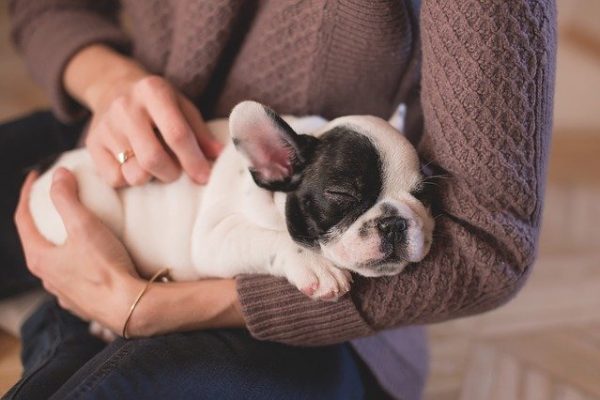
Pain, Discomfort, and Medical Issues.
If your dog yelps in pain while sleeping, it can be a result of Pain, Discomfort, and Medical Issues. Elderly dogs that have chronic joint problems or dogs that are experiencing painful conditions generally try to position themselves in ways that ease pressure on the places that cause them pain.
But when they are asleep, it is a different scenario, they will, without doubt, put pressure on these pain points albeit unconsciously, this will definitely make them yelp in their sleep. This situation is very obvious in older dogs and you will see them yelp and whimper from the pain they are experiencing, moreso, with older dogs, the pain can only get worse as they age so these things don’t get better for them.
It is very rare for a dog in pain or having medical issues to have a good night’s rest.
Medical conditions like Respiratory diseases, Digestive problems, liver and kidney problems, etc. also make it next to impossible for a dog to have a good night’s rest. Take a condition like stomach bloating in dogs, for example, whether it is due to foreign objects in the stomach, substandard food, or poisoning, the gas accumulation in the stomach would be unbearable for your dog. The pull and pressure not just on the stomach walls but also the connected intestine would make them restless.
If not addressed immediately, the dog might end up worse than you can imagine, check your dog’s diet, check your dog’s body well and reach out to a professional for advice.
Now we have answered the question “Why is my dog yelping in his sleep?” It is worth bearing in mind that yelping is not the only sound a dog can make while sleeping. Dogs can express themselves in various ways when they are asleep, especially when they are in the deep dream phase or REM phase. Here are some of the ways in which a dog can express himself or herself while sleeping.
Barking: is used by dogs to communicate many things while they are awake, it may be to draw your attention to something, it may be to voice their frustration about something, to alert you to some danger, to express their fear or anxiety over something, to play, to greet you and the list goes on and on.
Whatever it is, the same logic applies to your dog when he is dreaming, unfortunately, we can’t access his dreams so we can’t tell the exact situation that is making him bark in the dream.
Crying: A dog crying in his dream state may be experiencing a recreation of a situation that caused him grief or pain. It might be something that left them scared or stressed. Talking softly to your dog while sitting beside him can help them overcome this grief they are experiencing. Keep in mind not to touch your dog in this state.
Growling: Most people believe that a dog growls because he or she is aggressive, but this is not true. A dog growls as a sign of communicating that whatever is happening around him or her at the moment is making them uneasy. Are their strangers going in and out of your house randomly? Is your dog getting its ears cleaned? Whatever it is, the situation makes your dog uneasy and he or she growls.
In the same vein, your dog may growl because he or she is happy, for example, when they are playing with other dogs or when he is chewing on his bone. Mind you that all these scenarios also apply to a dog in the dream phase.
Grunting: is used by dogs to express contentment or relief, sometimes, it can be used to express joy or serenity. Whatever it is, as far they are still dreaming, leave them alone as it is no sign of danger. Only reach out for help if the grunting in their dreams seems excessive.
Reverse sneezing: A low guttural noise that sounds like a truck honking or quacking like a duck. Often more noticeable in dogs with short necks, for example, pugs, English bulldogs, and Shih Tzus. It mainly has to do with how your dog’s respiratory system is structured. Basically, you can compare this reverse sneezing episode in dogs to human snoring while asleep.
Coughing: this happens mostly due to an irritation in the outer wall of their respiratory system, usually near the mouth region. It can be an indication of a larger problem like lung problems, heart diseases, heartworms, fungal infections, etc.
A cough, while your dog is dreaming, is just a cough and does not have any link to whatever your dog may be dreaming of. As far as the cough is not persistent, your dog is ok.
As usual contact your vet doctor if the cough remains persistent.
Howling: This is done by dogs to show ownership of a territory, help a missing dog find its way back, acknowledge the presence of another dog or an alpha dog, or attract attention to itself especially when they have the feeling that they have missed their way, etc.
All these can also apply to our dogs in their dream phase.
DOG CARE
DOG PRODUCTS
DOG BREEDS
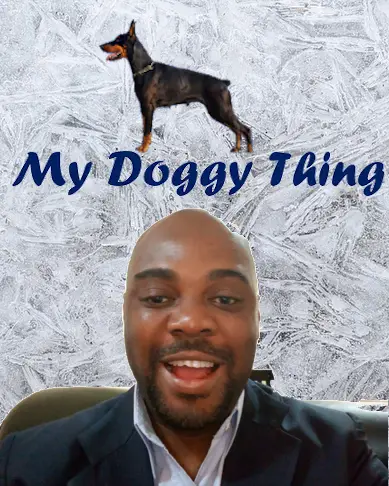
Hi, I am Charles Nwankwo Editor-in-Chief, Mydoggything.com. Gleaning from Professional Dog Trainers, behaviorist, Registered Veterinarians, and Breeders. We are passionate about making dog care easy for you. My job is to make sure that you get the best-updated dog care information to understand and take care of your dog or dogs.

